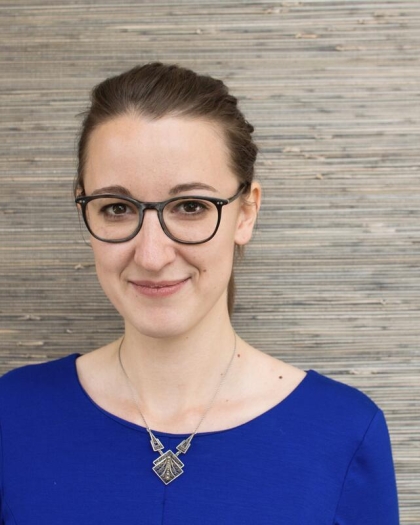Research groups
Research
My research focuses on ocean carbon cycle processes, on local and global scales, across different timescales, through the application of different statistical tools using both observational data and Earth System Models. Currently, I assess abrupt changes and tipping points in ocean biogeochemistry in order to evaluate the impact of climate change hazards on marine ecosystems.
Publications
Lecture
- Bourgeois, Timothée; Torres, Olivier; Fröb, Friederike et al. (2024). Pathways for avoiding ocean biogeochemical damage: Mitigation targets, mitigation options, and projections. (external link)
- Rusiecka, Dagmara; Heinze, Christoph; Langebroek, Petra et al. (2023). Workshop on ocean tipping points and extreme events. (external link)
- Rusiecka, Dagmara; Torsvik, Tomas; Fröb, Friederike (2022). Marine tipping points. (external link)
- Schwinger, Jörg; Lee, Hanna; Goris, Nadine et al. (2021). Low and overshoot emission scenarios – from a high to a low carbon society (LOES). (external link)
- Skjelvan, Ingunn; Becker, Meike; Omar, Abdirahman et al. (2018). ICOS data used for Ocean acidification research. (external link)
Academic article
- Fröb, Friederike; Bourgeois, Timothée; Goris, Nadine et al. (2024). Simulated Abrupt Shifts in Aerobic Habitats of Marine Species in the Past, Present, and Future. (external link)
- Olonscheck, Dirk; Suarez-Gutierrez, Laura; Milinski, Sebastian et al. (2023). The New Max Planck Institute Grand Ensemble With CMIP6 Forcing and High-Frequency Model Output. (external link)
- Fransner, Sara Filippa Krusmynta; Fröb, Friederike; Tjiputra, Jerry et al. (2022). Acidification of the Nordic Seas. (external link)
- Burt, Daniel; Fröb, Friederike; Ilyina, Tatiana (2021). The Sensitivity of the Marine Carbonate System to Regional Ocean Alkalinity Enhancement. (external link)
- Fröb, Friederike; Sonntag, Sebastian; Pongratz, Julia et al. (2020). Detectability of Artificial Ocean Alkalinization and Stratospheric Aerosol Injection in MPI-ESM. (external link)
- Fröb, Friederike; Olsen, Are; Becker, Meike et al. (2019). Wintertime fCO2 variability in the subpolar North Atlantic since 2004 . (external link)
- Fröb, Friederike; Olsen, Are; Pérez, Fiz F. et al. (2018). Inorganic Carbon and Water Masses in the Irminger Sea since 1991. (external link)
- Garcia-Ibanez, Maribel I; Zunino, Patricia; Fröb, Friederike et al. (2016). Ocean acidification in the subpolar North Atlantic: Rates and mechanisms controlling pH changes. (external link)
- Fröb, Friederike; Olsen, Are; Våge, Kjetil et al. (2016). Irminger Sea deep convection injects oxygen and anthropogenic carbon to the ocean interior. (external link)
- Zubler, Elias M.; Fischer, Andreas M.; Fröb, Friederike et al. (2016). Climate change signals of CMIP5 general circulation models over the Alps – impact of model selection. (external link)
Poster
- Goris, Nadine; Schwinger, Jörg; Fransner, Filippa et al. (2023). Potential changes of finfish thermal habitat under negative emissions. (external link)
- Fröb, Friederike; Bourgeois, Timothée; Goris, Nadine et al. (2022). Detection of abrupt shifts in the metabolic index in NorESM2. (external link)
- Fröb, Friederike; Olsen, Are; Becker, Meike et al. (2017). Impact of North Atlantic freshening on sea surface fCO2. (external link)
Academic lecture
- Fröb, Friederike; Bourgeois, Timothée; Goris, Nadine et al. (2022). Detecting ecosystem-relevant crossings of thresholds. (external link)
- Eide, Marie; Olsen, Are; Fröb, Friederike et al. (2017). The Anthropocene in the marine carbon isotope record, δ13C in the Nordic Seas. (external link)
- Becker, Meike; Olsen, Are; Fröb, Friederike et al. (2017). Nuka Arctica: North Atlantic Observatory. (external link)
- Becker, Meike; Olsen, Are; Omar, Abdirahman et al. (2017). Surface ocean pCO2 measurements within ICOS Norway and the example of M/V Nuka Arctica. (external link)
Doctoral dissertation
Projects
TipESM: Exploring Tipping Points and their Impacts using Earth System Models
OceanICU: Understanding Ocean Carbon (Horizon Europe)
COMFORT: Our common future ocean in the Earth system - Quantifying coupled cycles of carbon, oxygen, and nutrients for determining and achieving safe operating spaces with respect to tipping points (Horizon 2020)


